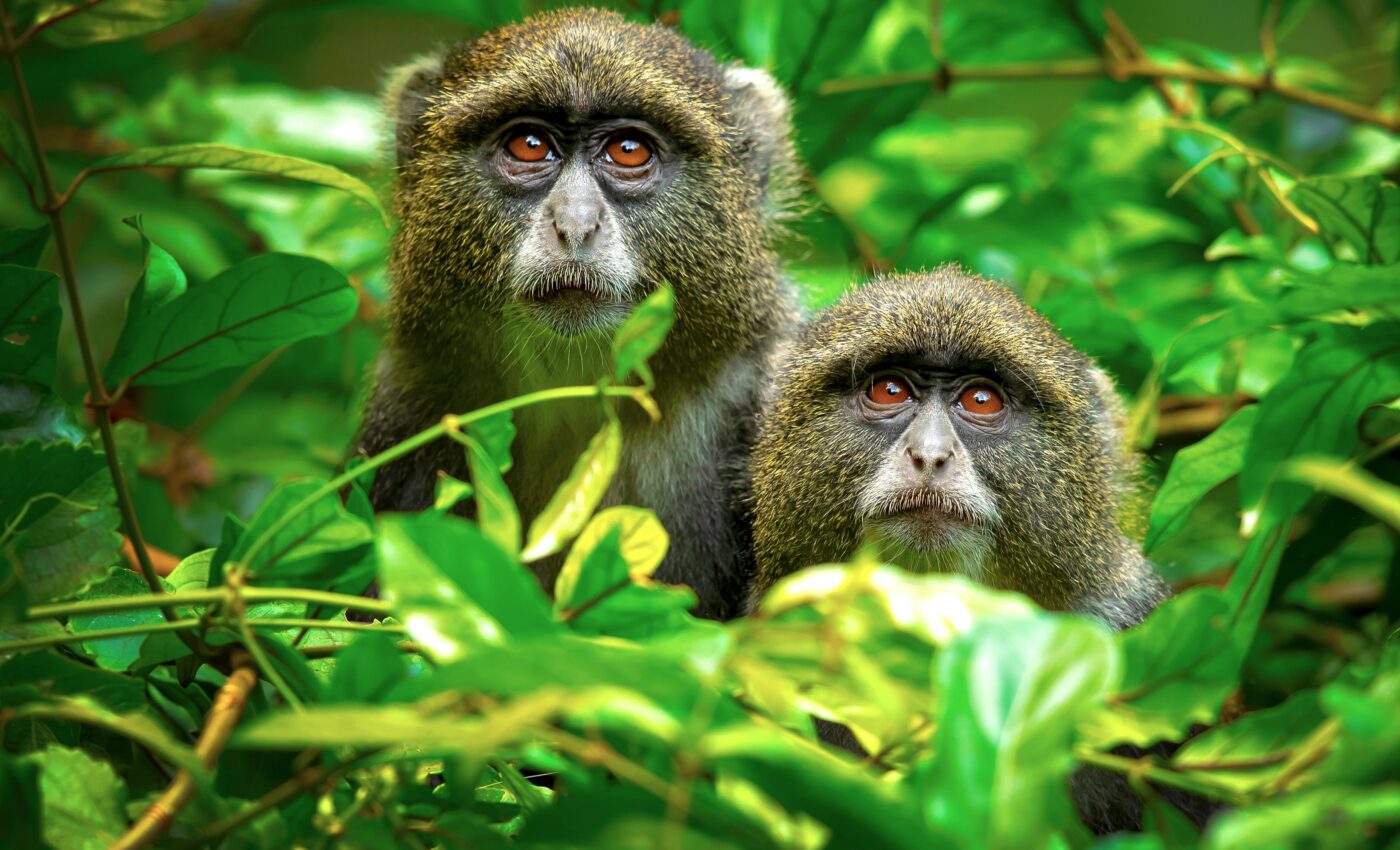
Primate moms influence their child’s microbiome, even after weaning
The development and composition of the gut microbiome in humans are known to be important in shaping host physiology, immunity and long-term health outcomes. However, our understanding of this dynamic process in wild mammals is poor. Mothers are important initially, as bacteria are transmitted to the young offspring through milk and suckling, determining the composition of the bacterial populations colonizing the gut. But as the offspring transition to an adult diet, the gut bacteria gradually change in ways not yet understood.
A new study has investigated developmental changes in the gut microbiomes of wild geladas (Theropithecus gelada), Old World monkeys that live in the highlands of Ethiopia and consume a diet consisting almost entirely of grass. The study provides the first evidence of clear and significant maternal effects on the gut microbiome both before and after weaning in a wild mammal. The findings are published in the journal Current Biology.
The research team, co-led by Stony Brook University anthropologist Dr. Amy Lu, and biologists Dr. Alice Baniel and Dr. Noah Snyder-Mackler at Arizona State University, made use of one of the largest datasets on gut microbiome development in any wild mammal. The experts used high throughput DNA sequencing to identify and characterize the bacteria present in the guts of young geladas in their first three years of life, and assessed the role of maternal effects in shaping the young’s gut microbiome.
The analysis revealed a total of 3,784 different genetic strains of bacteria, belonging to 19 distinct phyla and 76 families, that resided in the gut microbiomes of the geladas. Overall, they found that postnatal microbial colonization in geladas was remarkably similar to that seen in humans, with microbial diversity increasing rapidly after birth and being followed by gradual changes in composition until the time of weaning.
Young infants that were still feeding predominantly off milk had microbiomes that reflected this diet – for instance, there were bacteria present that could digest milk glycans, molecules that cannot be broken down without the action of bacteria. In contrast, older geladas that included more plant matter in their diet had fewer milk-oriented gut microbes and more microbes necessary for the digestion of grass.
Although the main driver of gut microbe composition was the change in diet from milk dominated to grass dominated food, maternal input was also a key factor. The researchers found that the infants of experienced mothers (who had raised infants previously) showed faster maturation of the microbial biome in the gut. This reflected a faster developmental pace overall for infants born to these mothers.
“Infants of first-time moms showed slower development of their gut microbiota, meaning that their guts were specialized toward milk digestion for longer, compared to kids from other moms. This may put offspring of newer moms at a slight developmental disadvantage,” said Baniel. “In addition, even after infants were weaned, their microbiome community was more similar to mom’s than to other adult females in the population, suggesting that moms may be sharing microbes with their offspring.”
“Early life gut microbial development is known to have a large impact on later life health in humans and other model organisms,” said Lu. “Now we have solid evidence that mothers can influence this process, both before and after weaning. Although we’re not 100 percent certain how mothers do this, one possible explanation is that they transfer specific bacteria to their offspring.”
According to Snyder-Mackler, these early life changes might have far-reaching consequences which impact the health and survival of these offspring once they become adults.
Future work from this research team is therefore going to examine how differences in the gut microbiome during infancy influence other aspects of development, such as growth, the maturation of the immune system, and the pace of reproductive maturation. Luckily, because they are continuing to study the same infants as they age, the researchers will eventually be able to link the infant gut microbiome and the early-life maternal effects to health, reproduction, and survival in adulthood.
—
By Alison Bosman, Earth.com Staff Writer













